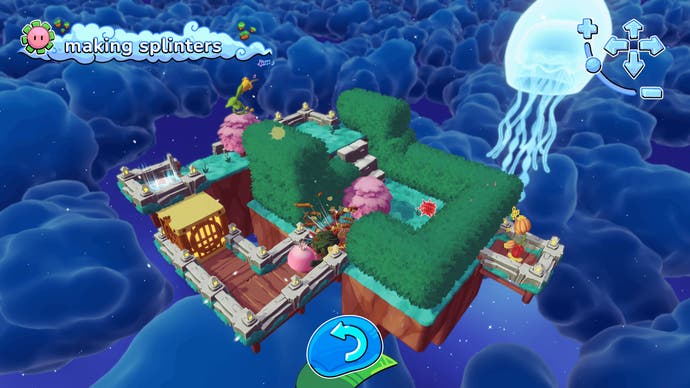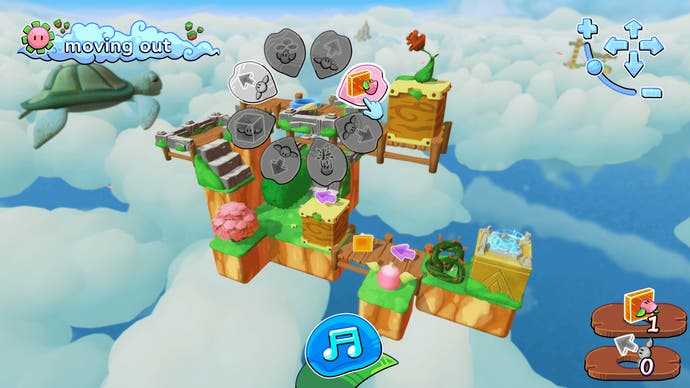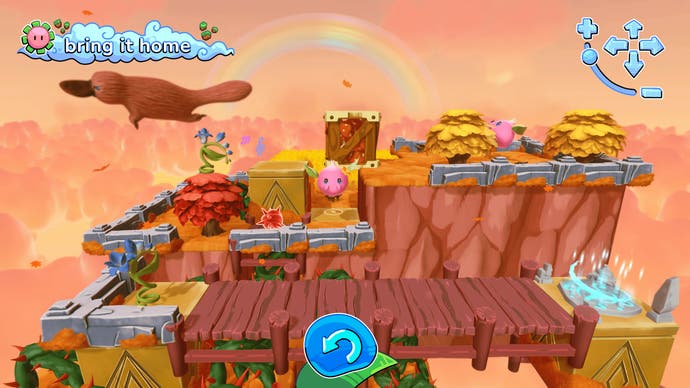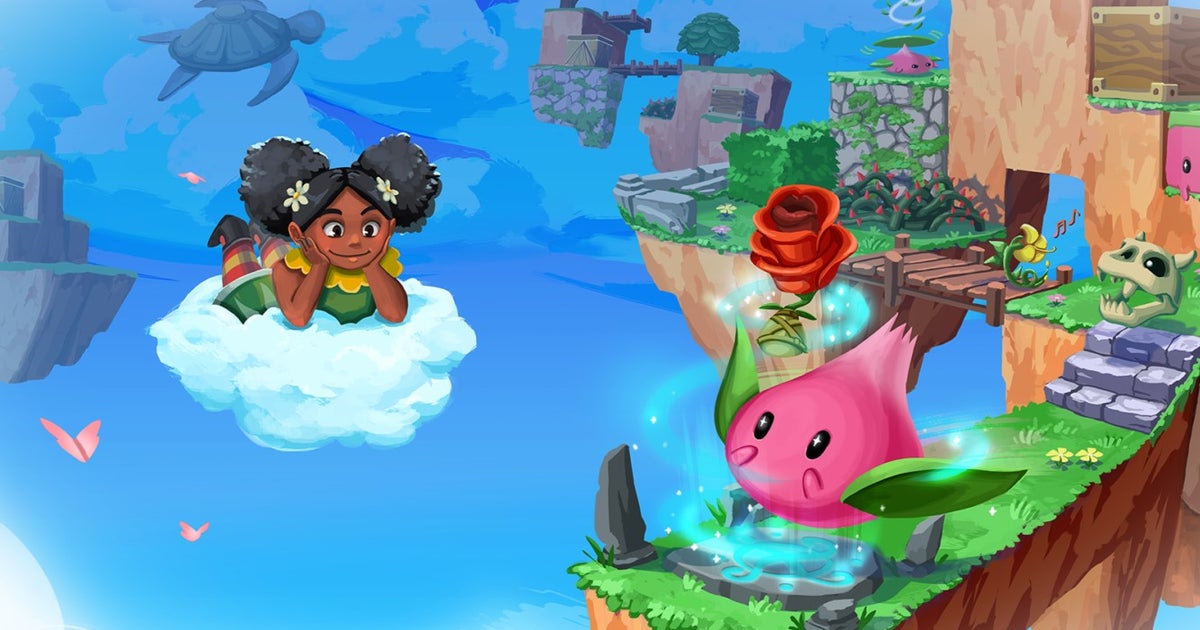Three years ago, everything was about to change for the small Australian studio Witch Beam. It was gearing up to launch its second game—a game about unpacking boxes and finding a place for your stuff. Unpacking, it was called. And the hope was that it would build on the success of the studio’s first game, Assault Android Cactus, a vigorous twin-stick shooter that had done relatively well. But there were fears: how many people would want a chilled-out game about placing objects? How many people would understand what it was trying to do?
Witch Beam needn’t have worried. In just a year, Unpacking reached a million sales – far, far more than Assault Android Cactus had ever managed. It catapulted the studio to fame. Eurogamer named Unpacking Game of the Year in 2021, and Unpacking won awards, including two gaming BAFTAs. For Witch Beam, it was an unqualified success. “It changed your life,” co-founder Sanatana Mishra tells me now. “We spent 10 years following our creative passion and weighing every little decision against the possibility of being destitute at the end of the road that you’re on, and that was a tough time. We acted on our youth and our health in a way that you only really get to do once or twice in a lifetime. You can’t just keep doing that. And now, overnight, after 10 years of doing that, we didn’t really have to think about that anymore. So that was a life-changing experience for everyone on the team and everyone we work with. It’s been amazing.”
And now the team is back with a new game called Tempopo.
Tempopo is as different from Unpacking as Unpacking was from Assault Android Cactus. It’s another puzzle game, yes, but this time it’s about guiding bouncing creatures through dense obstacle courses in the garden while music pounds around you. “Planning and execution are the loop that the game has,” explains Mishra, who came up with the concept with his friend Seiji Tanaka, a former animator on the legendary game Journey. The idea came to them during a game jam while pondering “evolutionary dead ends,” of all things. Think saber-toothed tigers. “Why does that go extinct but not some other animal?” Mishra wonders.
Something similar applies to game genres or particular game ideas, Mishra thinks. “When I look at those classic games that I love – Lemmings and ChuChu Rocket! – I think, ‘Why are these things no longer interesting to people?’ What decisions did they make that meant that – in the way that people expect games to exist now – that game doesn’t work?” And perhaps more importantly, as a follow-up to that thought, “Is there another way that it could have mutated and been incredibly successful?” That’s where the core of Tempopo’s idea comes from. But it wasn’t until Witch Beam co-founder and composer Jeff van Dyck got involved that it really took the musical form that we see now.
Manage cookie settings
The core of Tempopo should be easy to understand. You’re on a mission to find magical singing flowers and return them to a garden, where you create a kind of soundscape. “Planning and execution is the loop that the game has,” Mishra says. Before the level starts, you give instructions to chubby creatures, and if you’re happy, you start the level to see if they’ll successfully execute them. There’s no real-time input. If you want to change something because your plan didn’t work, you start over from scratch. But there’s no stress.
“I want to try to avoid a problem that I have with a lot of games, especially in the puzzle world, where I feel a tremendous amount of anxiety when I play them,” Mishra says. “I feel judged because I constantly feel like I’m not good enough for the game in some way.” He says he hears people say all the time that they “can’t do puzzle games,” and it irritates him. “We’re all naturally really good at puzzle games,” he tells me. “It’s literally part of our evolutionary biology. But we constantly feel this kind of anxiety that the game is saying, ‘Oh, you should probably solve that a little faster; you should have solved that a little faster; you should know this – you should know how that works.’ So I try to get people into that relaxed state of mind,” he says. “I want people to sit down with Tempopo and feel a sense of calm come over them.”



This sense of calm ties into the game’s overarching theme of harmony. It’s in the musical harmonies you create in your garden soundscape, but also in the gameplay actions you perform as your bouncing blobs try to help each other solve puzzles, and in protagonist Hannah’s journey through the game. Perhaps harmony is a theme that resonates with you as you play, too. “As you get more of an understanding of the game and its elements, and you start to think a bit more about the characters and what they’re trying to do, and you understand the plot, you can take that theme and play with it in your head about how useful it is,” Mishra says. “I think it’s quite useful to think about harmony in this world anyway,” he adds. “It’s not that I’m going to beat people over the head with it. It’s just an underlying element of that that the game is about.”
These deeper themes are reminiscent of what Unpacking did so well, which was, on the surface, a puzzle game about unpacking boxes and finding space for items, but underneath it all, a game that tells the story of someone’s life. A story that was gently moving, and that’s why it resonated with us so much. But while Tempopo has deeper themes, “it’s a very different experience,” Mishra points out. It’s worth noting here that Unpacking lead creator Wren Brier is not working on the project. “Wren is taking a break from development,” Mishra says. “She and Tim [Dawson, the third Witch Beam co-founder] are partners, so they live together, still do stuff and stuff, but Wren is in desperate need of a break. She worked so hard on Unpacking, and then it came out and we did different versions on other platforms, and talks and events and stuff. Now she’s going to recharge before she tackles something new.”
Secondly, Witch Beam never wanted Tempopo to be the same kind of game. They did talk about making Unpacking 2, because people kept asking the studio about it, but the conversations never got very far. “We had a conversation about it for about 10 seconds. We were like, ‘We don’t want to do this,'” he says. “We thought it was a complete game that stood on its own.” In other words, the idea had fizzled out, and the studio didn’t want to continue on the same path and become known for just one thing. “If anything,” he says, “I would say our creative trademark is that there’s not one single theme that’s going to run through everything all the time — it all depends on what we find exciting and interesting at the time.” Usually, if someone is passionate enough to see an idea through to completion, “that’s enough for everyone to get involved.”
Manage cookie settings
Mishra likens Witch Beam’s approach to working with an artist collective, in that the core of the studio—its three founders—remains the same, but the collaborators on individual projects change. Unpacking’s Wren Brier was technically a collaborator, as was Tempopo co-founder Seiji Tanaka. “And we try to, based on how the project goes, make sure that success flows back to the people who work with us,” Mishra says. The success of Unpacking has been beneficial not just to Witch Beam, for example, but to the broader development scene in Queensland, Australia. “That’s why I said earlier that we stay small despite our success, because we want to be the ones making the games, and then try to use that success to empower our local developers here to make their games.”
Witch Beam didn’t bet on Tempopo matching the runaway success of Unpacking , which is a relief. Theoretically, the company could sustain itself for years on that game’s revenue alone. But there’s no escaping the sense of pressure that comes with massive success. “There’s definitely that sense that you’ve done something successful, so now everything you ever do is measured against what you did before,” Mishra says. “And that’s a little bit scary from a creative standpoint.” Because what if you don’t measure up—does that mean you’re failing in some way? It’s disheartening. “But when I get too focused on that pressure,” he adds, “I think about the fact that it’s only because we’re in a position that anyone would want to be in.” He reminds himself: “It’s so incredibly privileged to be in this position.”
Tempopo is in development for PC, Switch, and Xbox, with a release date set for this year.
